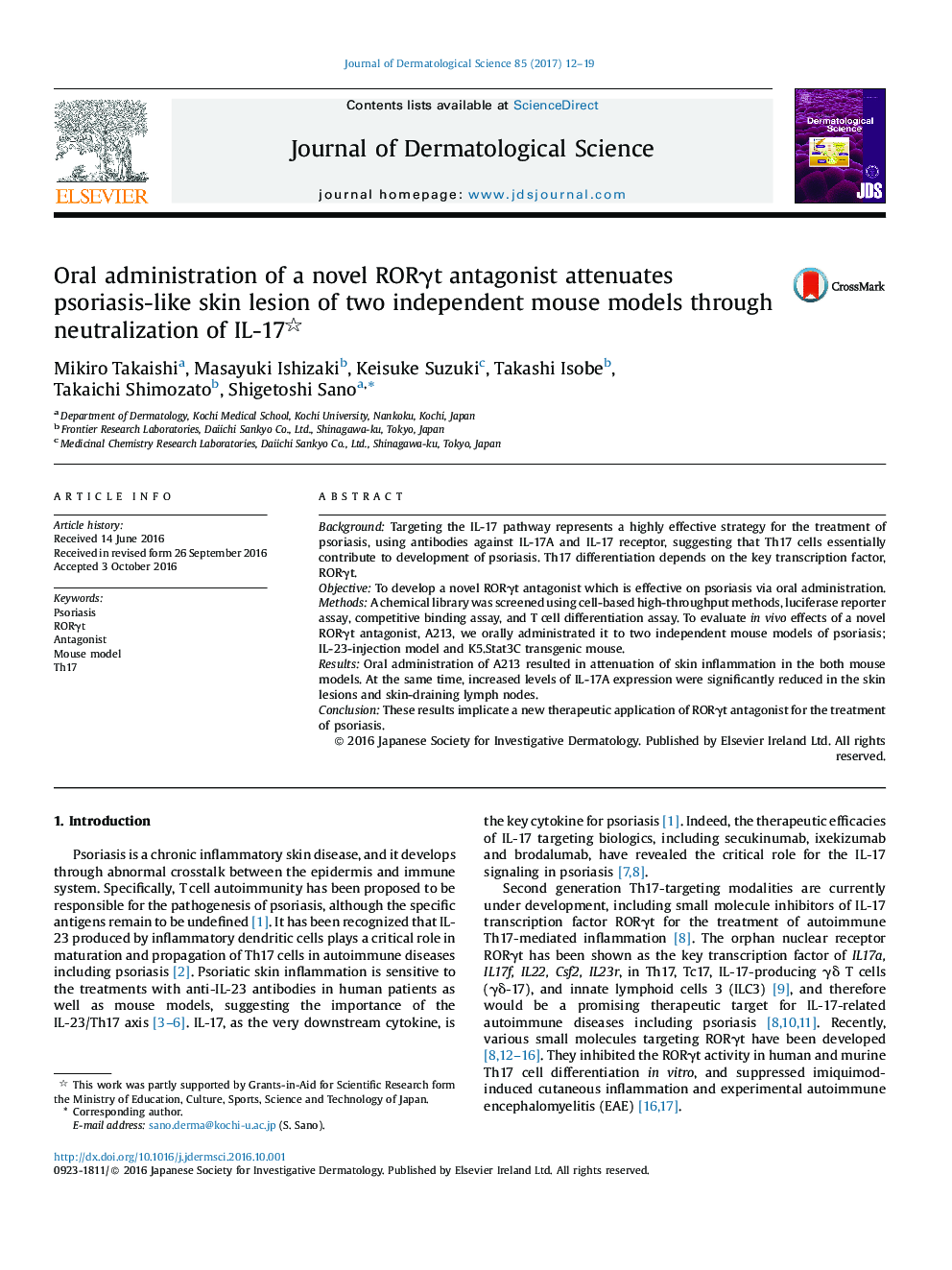| Article ID | Journal | Published Year | Pages | File Type |
|---|---|---|---|---|
| 5649083 | Journal of Dermatological Science | 2017 | 8 Pages |
â¢We have developed a novel RORγt antagonist, A213.â¢A213 specifically binds to RORγt and inhibits murine Th17 differentiation in vitro.â¢Oral administration of A213 attenuates psoriasis-like inflammation in mouse models.
BackgroundTargeting the IL-17 pathway represents a highly effective strategy for the treatment of psoriasis, using antibodies against IL-17A and IL-17 receptor, suggesting that Th17 cells essentially contribute to development of psoriasis. Th17 differentiation depends on the key transcription factor, RORγt.ObjectiveTo develop a novel RORγt antagonist which is effective on psoriasis via oral administration.MethodsA chemical library was screened using cell-based high-throughput methods, luciferase reporter assay, competitive binding assay, and T cell differentiation assay. To evaluate in vivo effects of a novel RORγt antagonist, A213, we orally administrated it to two independent mouse models of psoriasis; IL-23-injection model and K5.Stat3C transgenic mouse.ResultsOral administration of A213 resulted in attenuation of skin inflammation in the both mouse models. At the same time, increased levels of IL-17A expression were significantly reduced in the skin lesions and skin-draining lymph nodes.ConclusionThese results implicate a new therapeutic application of RORγt antagonist for the treatment of psoriasis.
